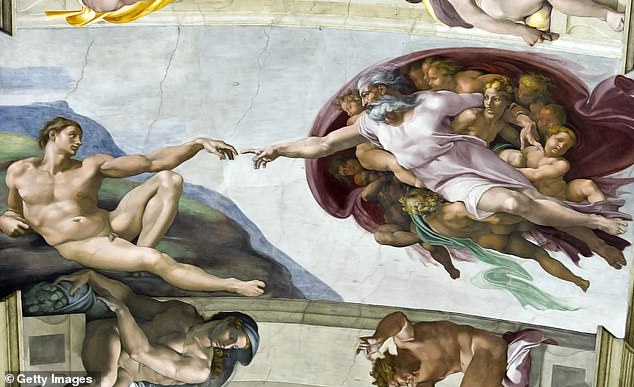
Divine Inquiry: Scientists Examine Evidence for the Existence of God
Does God Exist? Experts Weigh In on Humanity’s Eternal Question
The existence of God has sparked debate for millennia, intertwining with humanity’s quest to understand its place in the universe. From ancient philosophers to modern scientists, the question remains: Is there a divine force behind our existence?
Depictions of God: Between Art and Anthropology
God is often portrayed as an elderly bearded man, popularized by Michelangelo’s The Creation of Adam in the Sistine Chapel. Similarly, films like Bruce Almighty (2003) depict God as Morgan Freeman’s wise, approachable figure, while Monty Python parodies a cynical, authoritarian version. These portrayals reflect cultural tendencies to anthropomorphize the divine.

Michelangelo’s iconic fresco depicts God imparting life to Adam, symbolizing divine creation (Credit: Sistine Chapel, Vatican City).
Religious texts like the Bible use male pronouns, yet theologians clarify that God transcends gender. Dr. Ilia Delio, a theologian at Villanova University, argues society has turned God into a “superman in the sky,” a projection of human needs rather than an entity confined to form. “God is not an object to argue about, but the ground of all existence,” she explains.
The Science vs. Faith Debate
While some argue life itself is evidence of a creator, scientists often point to the Big Bang 14 billion years ago as the universe’s origin. The late physicist Stephen Hawking contended that natural laws—not divine intervention—explain the cosmos. In The Grand Design (2010), he wrote, “Spontaneous creation is why there is something rather than nothing.”

Stephen Hawking argued physics negated the need for a Creator (Credit: Getty Images).
The “God Delusion” and Modern Skepticism
Richard Dawkins, evolutionary biologist and atheist, dismisses theism as a delusion. In his book The God Delusion, he asserts that meaning comes from human agency, not divine purpose. Conversely, polls reveal a resurgence of spirituality among Gen Z, with fewer identifying as atheists compared to older generations.
Where Does This Leave Us?
For experts like Alexandros Batalias (Cambridge University), God’s existence defies empirical proof, as it transcends human understanding. “God is a subject, not an object to measure,” he says. Whether through faith, philosophy, or science, the search for answers continues—uniting and dividing humanity in equal measure.

Gen Z’s growing spirituality contrasts with older generations’ secularism (File Photo).
Conclusion
The debate over God’s existence remains unresolved, straddling science, culture, and personal belief. As explorations of the cosmos and consciousness evolve, humanity’s oldest question endures—proof not of answers, but of our endless curiosity.
(Approx. 600 words)


